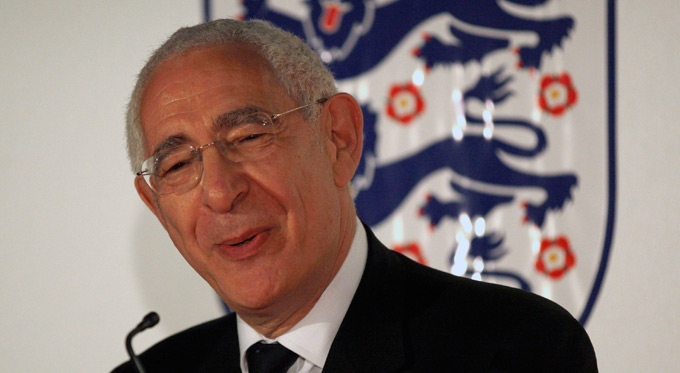LONDON, (Reuters) – European nations should boycott the 2018 and 2022 World Cups unless FIFA transforms itself into a transparent, open organisation, a former head of the English FA said on Friday.
David Triesman, who led England’s failed bid for the 2018 event which was awarded to Russia, was fiercely critical of world soccer’s governing body in an interview with Sky Sports television.
FIFA said it had no comment to make regarding Triesman’s views.
A spokesman on foreign affairs in the House of Lords, the second chamber of the UK parliament, Triesman was speaking in the wake of a report by U.S. attorney Michael Garcia into alleged corruption in the awarding of those two World Cups.
Russia and 2022 host Qatar deny any wrongdoing, and German judge Hans-Joachim Eckert’s summary of Garcia’s investigation said there were no grounds to reopen the bidding process.
However, Garcia said soon after that Eckert’s statement contained misrepresentations and that he would appeal to FIFA’s appeal committee.
Triesman said it was time Europe, the most powerful of FIFA’s six continental confederations, stood up to the governing body and gave them an ultimatum.
“I would like to see two simultaneous approaches,” the 71-year-old said. “First by UEFA, and (president) Michel Platini would need to lead it, saying UEFA is no longer prepared to co-operate with FIFA in the way it is conducting itself and in those circumstances that might well mean making the threat at this stage to withdraw from the World Cup.
CLEAN AND TRANSPARENT

“The second is to see the sponsors who’ve got great, great brands around the world, saying we don’t want to be associated with this kind of operation. It runs like a rogue state,” said Triesman.
“Michel Platini and the UEFA people … should be saying, if you want the Europeans involved in this world sport it has to be a clean sport run in a transparent way and to standards that are exacting.”
Asked if he wanted to see European nations boycotting the World Cup in 2018 and 2022, Triesman replied: “I think we should begin the process by saying unless this becomes a clean and transparent process now, that’s exactly what we are going to do.”
The Swiss-based governing body has said Garcia’s report must remain private under Swiss law, and to protect the anonymity of witnesses who gave evidence during his inquiries.
But Triesman said: “FIFA will always find a reason not to disclose properly and that I am afraid is what has been happening for decades”.
He joined growing calls for the FIFA executive committee to see the report’s full findings.
“They are responsible for the organisation,” added Triesman. “If we were talking about any other walk of life and we said ‘oh the top committee in this organisation isn’t entitled to know what’s happened and what has potentially gone wrong’ everyone would say that’s incredible.
“Can you imagine a company in which the most senior executives said that about their board. It is unthinkable.”





